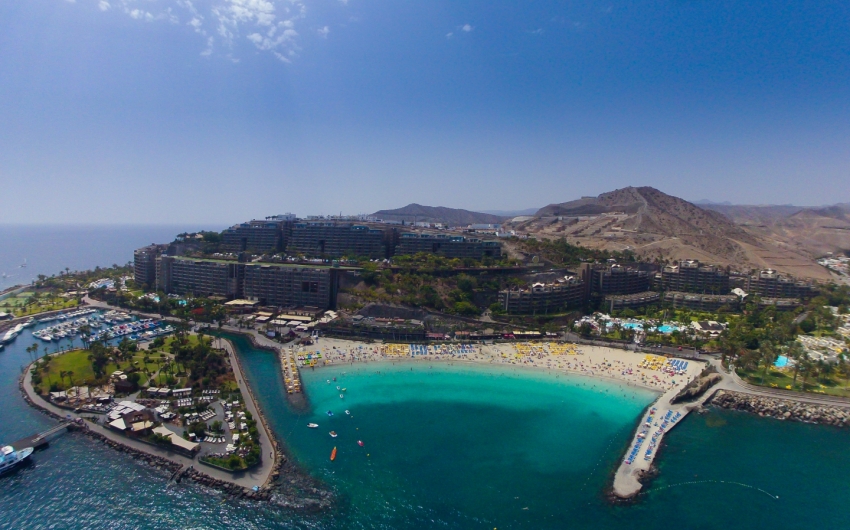There are dozens of different company structures allowed in Spain but most people opt for the most common ones. Just for fun, here’s a full, slightly mind-boggling list of the potential options.
Being a sole trader in Gran Canaria: Going autónomo
Most small Gran Canaria companies keep things simple and opt for self-employed status (known as being Autónomo). This allows you to work legally, open a business bank account, send facturas in your name, employ other people, etc.
When we said simple, notice how we didn’t mention cheap. Once your first year of cheap Autonomo status is up, you’re looking at a mandatory 250-270 euro payment per month. This covers social security payments and insurance but doesn’t include tax. Autonomos in Gran Canaria still have to pay income tax (IRPF) and VAT (IGIC).
The total tax bite for a sole-trader in Gran Canaria is roughly 20% of earnings (but you can deduct expenses). You have to do annual or quarterly IRPF declarations and pay IGIC quarterly (we seriously recommend that you employ and accountant or gestoria to do this for you).
Two or more autonomos can further organise themselves into a partnership and obtain a CIF business number which looks better on bids that the NIE o NIF number that autonomos have to use.
A major disadvantage of being autonomo is that there is no limitation so creditors can pursue all your assets including your home if you are in debt. There is a form of autonomo called a Emprendedor de Responsabilidad Limitada which protects your home (to a certain extent) from creditors.
In any case, civil liability insurance is a good idea.
A limited company in Gran Canaria: The sociedad limitada or SL)
A Sociedad de Responsabilidad Limitada (almost always referred to as an SL) is the Spanish equivalent of a UK limited company and give you similar protection from creditors in the case of debts.
To set one up you need to register a name with the Registro Mercantil and to put in a minimum capital investment of €3,005.06 (most people take it out the day after the company is set up although you aren’t meant to).
Starting a stock corporation in Gran Canaria: The Sociedad Anónima – S.A.
This is not a common way to start a business in Gran Canaria or Spain as it requires an initial capital of €60,101.21. However, an SA does protect you from personal liability and also allows you to sell the shares to a third party.
If your Gran Canaria startup is going global, this is a good ay to get investors on board.
An SA must have a Board of Directors (Consejo de Administración) and hold an annual Shareholders’ General Meeting (Junta General de Accionistas).
The tax efficient Gran Canaria company: Starting a ZEC
If you plan to come to Gran Canaria, invest a significant amount of money (100K-plus) and employ five people, then consider a ZEC entity. These are legal, low-tax companies based in the Canary Islands that save serious amounts on capital gains and corporation tax.
Joining a cooperative in Gran Canaria: Joining a Cooperativa
Cooperatives are a way for autonomos to share costs. Instead of working for n employer as an autonomo, you bill via the cooperative and pay it a percentage of your earnings.
To join a cooperative ou have to find one that works in your business niche (teacher, jeweler, etc). Then you have to persuade the people you work for that cooperatives are a valid way of doing business in Gran Canaria as most people have never heard of them.
Cooperatives are worthwhile provided that you own under around 2000 euros per month. Above this figure and you are better off being autonomo.
Opening a Gran Canaria business
Becoming autonomo isn’t too hard: Just take your NIE to the Ventanilla Unica Empresarial on Leon y Castillo in Las Palmas and hope that everyone is at their desks. You should be able to sign up for tax and social security on site, then register for IGIC with the Canarian tax office (about 10 minutes north of the VUE).
If you are a new resident, you may be asked to provide evidence that you have a business plan and clients before you can sign up.
You need to pick an autonomo code that identifies your line of work. The list is long and rather pedantic so it’s worth having a look before you head off to sign up. Here is the full list in English. The only effect this has on you is that it affects whether you have to declare your earnings annually or quarterly.
You should be able to sign up for tax and social security on site, then register for IGIC with the Canarian tax office (about 10 minutes north of the VUE).
For all other corporate structures in Gran Canaria, we seriously advise you to use an advisor as the paperwork is complex and the options myriad.
In Las Palmas de Gran Canaria, we recommend Montelongo Asesores as they have plenty of experience helping foreigners to set up in Gran Canaria. If you are planning a ZEC, they are the most experienced firm on the island.
If you plan to run a business in Gran Canaria you’ll need to speak at least some Spanish: Here’s our Guru Guide to Learning Spanish in Gran Canaria.













